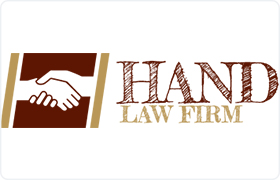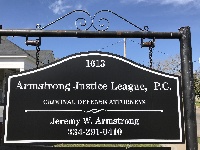Five Points Misdemeanor Lawyer, Alabama
Sponsored Law Firm
-
 x
x

Click For More Info:
-
Hand & Associates, LLC
114 N 8th St Opelika, AL 36801» view mapAccident & Injury, Family, Business, Wills, Criminal Accomplished · Determined · Experienced
Our approachable attorneys immediately put you at ease about your legal problem. We are focused on making a brighter future for you.
334-741-4077
Not enough matches for Five Points Misdemeanor lawyer.
Below are all Five Points Criminal lawyers.
Benny Hand
✓ VERIFIEDBen Hand is the founding partner of Hand Law Firm, LLC. as well as a partner in Hand & Hand Mediation, LLC. Ben was admitted to the Bar in Alabama in... (more)
Will O. Walton
✓ VERIFIEDAfter many years of practicing law with a large prestigious firm, Trip Walton decided to build his own firm around a core of attorneys with superior t... (more)
Jeremy W. Armstrong
✓ VERIFIEDI have spent my entire legal career in the criminal justice system as a former prosecutor and a criminal defense attorney since October 2000. In Apri... (more)
Melvin Lamar Bailey
FREE CONSULTATION
CONTACTWilliam Lamar Smith
FREE CONSULTATION
CONTACTJoseph L. Dean
Barbara H. Agricola
FREE CONSULTATION
CONTACTGabriel Joseph Smith
FREE CONSULTATION
CONTACT Benny Hand Opelika, AL
Benny Hand Opelika, AL Practice AreasExpertise
Practice AreasExpertise



